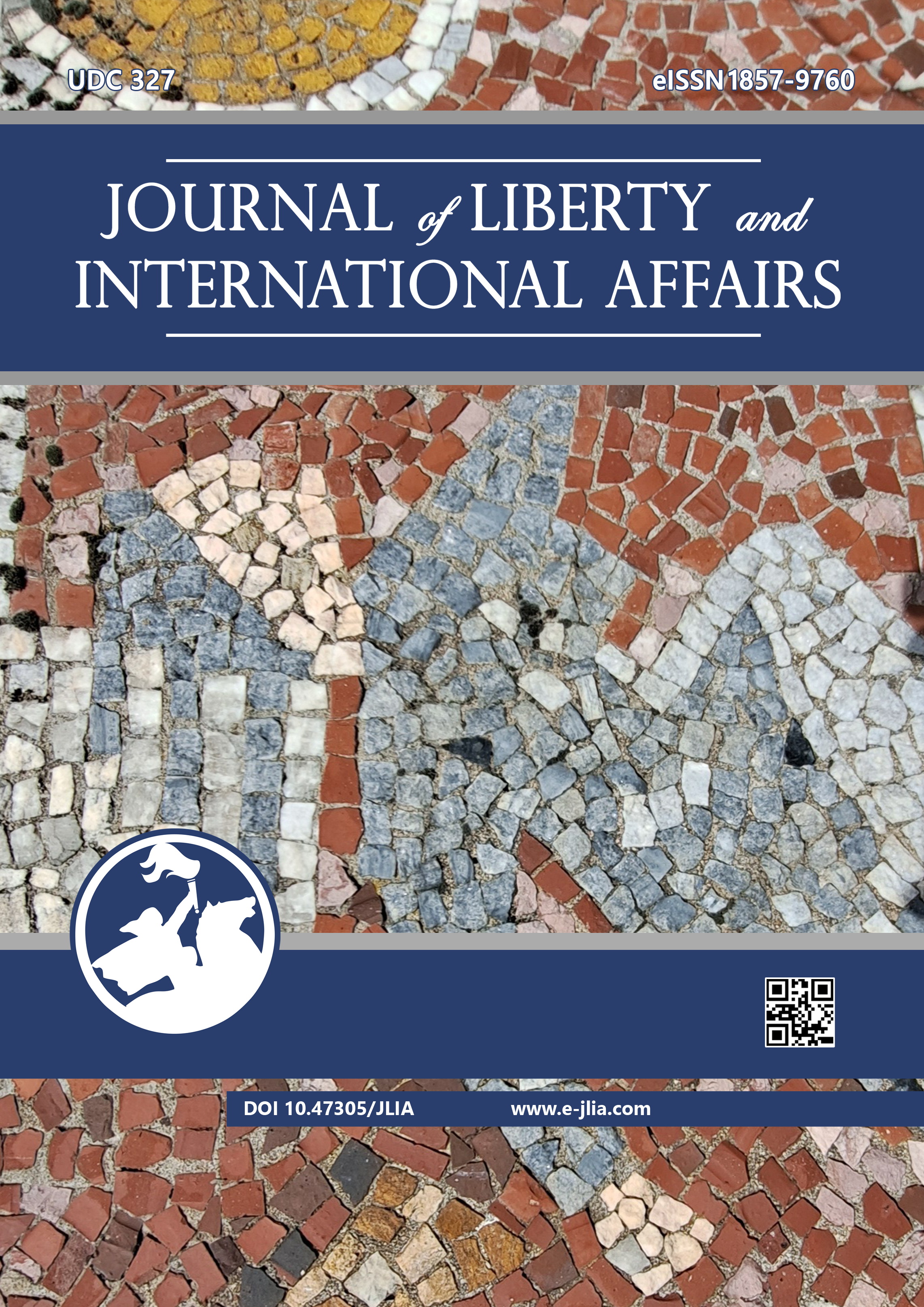RECONSIDERING THE RUSSIAN-UKRAINIAN CONFLICT AND SECURITY CONCERNS IN AFRICA
RECONSIDERING THE RUSSIAN-UKRAINIAN CONFLICT AND SECURITY CONCERNS IN AFRICA
Author(s): Ndifon Neji, Immaculata Obaji-Akpet, Michael Otu, Joseph Ebegbulem, Samuel Edet, Ayuk Awunghe, Nwosu StanleySubject(s): Politics / Political Sciences, Politics, Political Theory, Political Sciences, Governance, Public Administration, Public Law, Government/Political systems, International relations/trade, Security and defense, Military policy, Welfare systems, Developing nations, Political psychology, Politics and law, Politics and society, History and theory of political science, Methodology and research technology, Comparative politics, Inter-Ethnic Relations, Geopolitics, Politics of History/Memory, Politics and Identity, Peace and Conflict Studies, Asylum, Refugees, Migration as Policy-fields
Published by: Institute for Research and European Studies - Bitola
Keywords: Russia-Ukraine War; African Security; Copenhagen School; Conflict; Human Security
Summary/Abstract: Russia’s invasion of Ukraine in 2022 triggered a conflict that has transformed international relations through drastic impacts on policymaking, energy politics, and alliances. Such impacts have produced severe multi-dimensional consequences for African countries that have yet to be sufficiently interrogated in the literature. In response to this gap, this paper examined the security implications of the conflict for African countries to offer a comprehensive analysis that considers the intersection of the conflict with contemporary economic, human, social, and political issues confronting Africa. In discourse using a qualitative approach and rooted in a theoretical perspective drawn from the Copenhagen School, the paper underlined the security implications as evident in the areas of food security and governance, buttressing that the proxy conflicts and power struggles associated with this war have exacerbated existing challenges related to food availability and interfered with the consolidation of democracy in Africa. The paper concluded that the war’s multi-dimensional impact potentially compounds political instability vectors. It generates dynamics capable of eroding social cohesion and fomenting social unrest in Africa, meriting its designation as an issue of great concern to African policymakers.
Journal: Journal of Liberty and International Affairs
- Issue Year: 10/2024
- Issue No: 1
- Page Range: 233-251
- Page Count: 19
- Language: English

